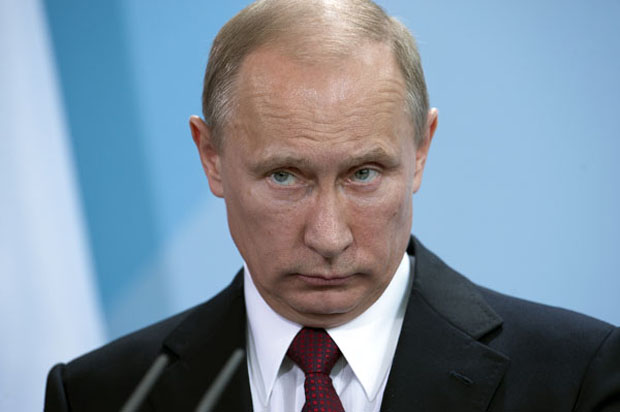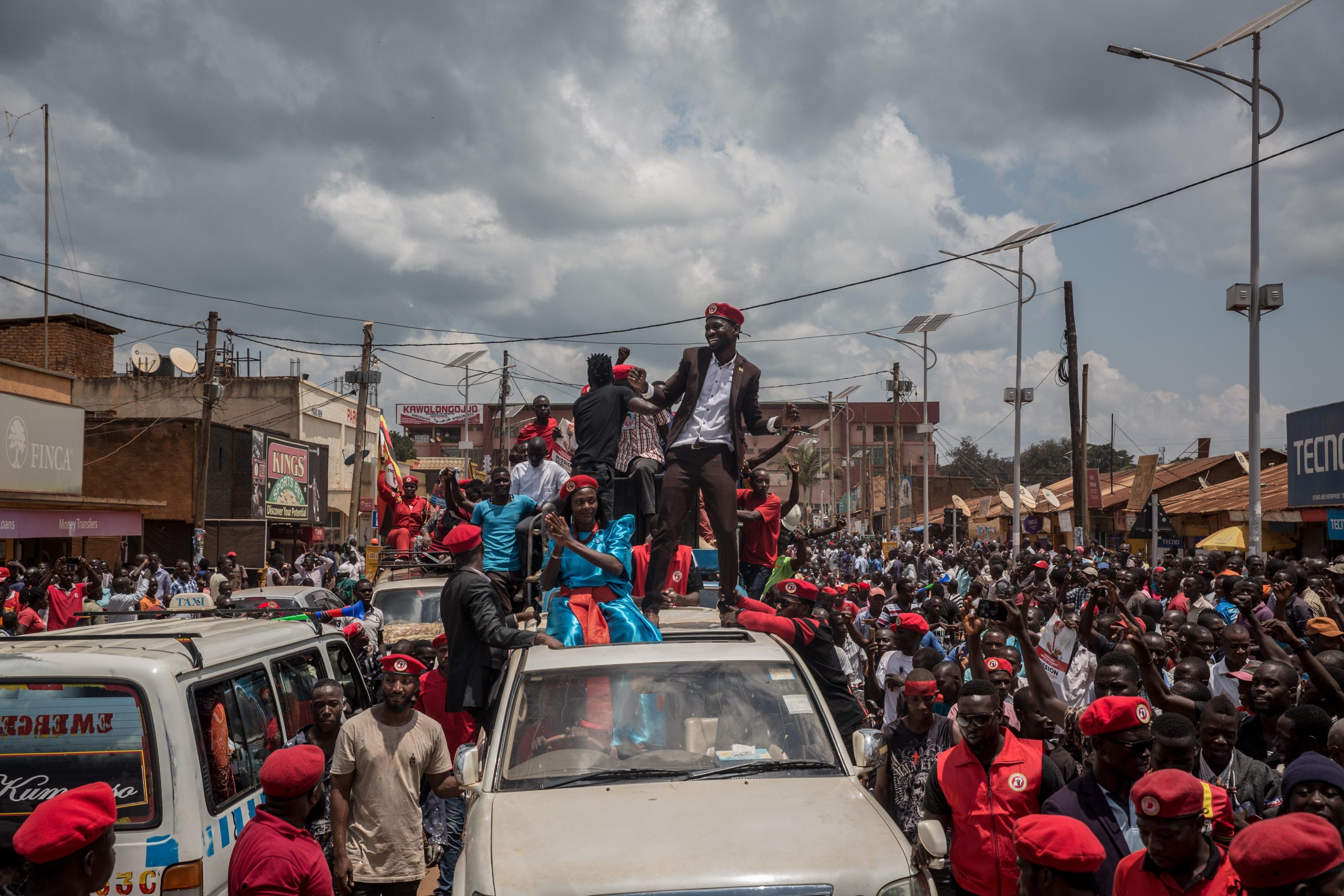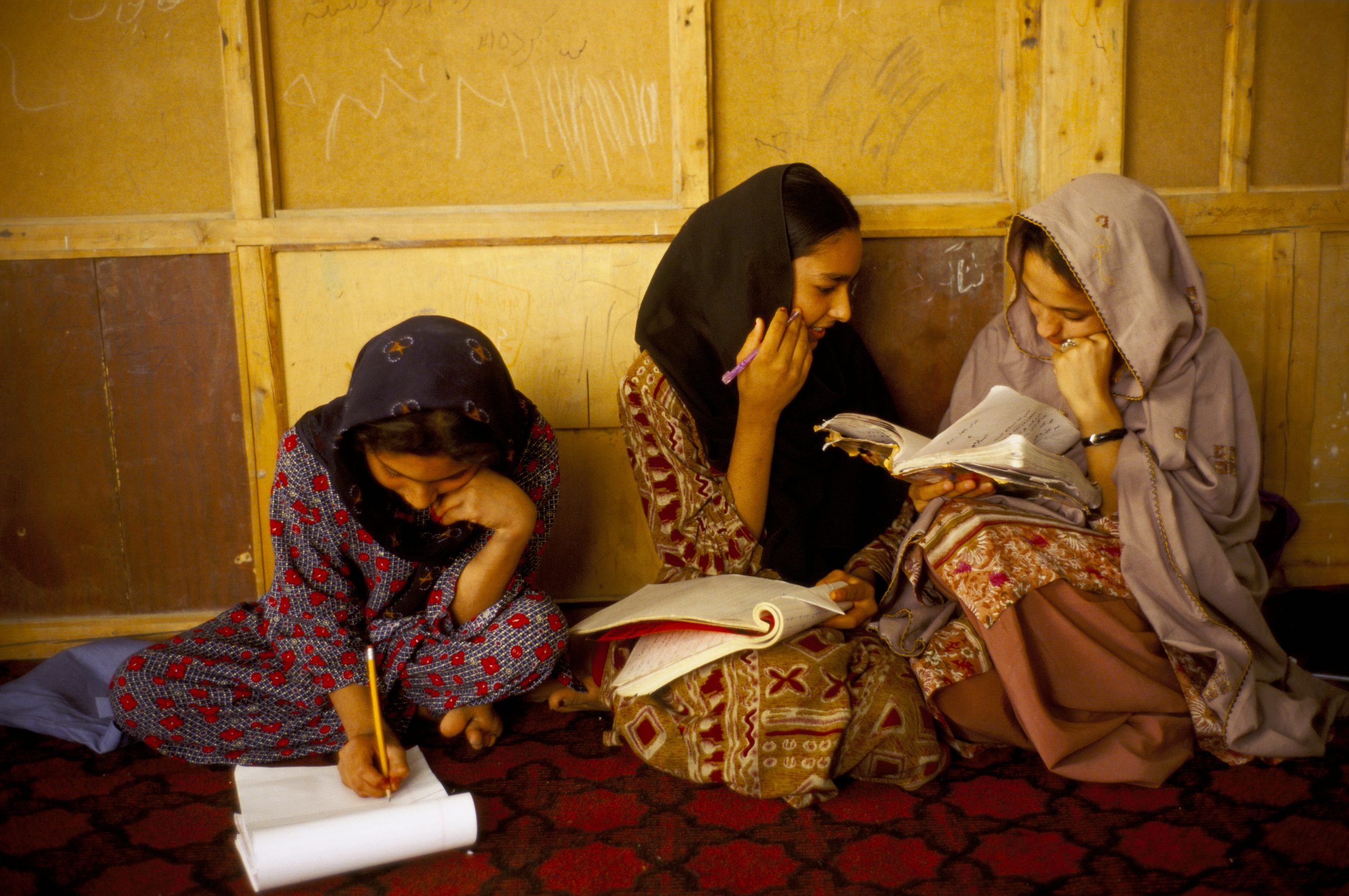
(Image: /Demotix)
At a conference in Prague last Spring, I listened as the wife of a former diplomat quizzed a Russian journalist on Russian politics. An old Cold War hand, she was keen to discover what motivated Putin and his cadre. Was it some hankering after communism? Was it plain nationalism?
The journalist, displaying the scepticism bordering on cynicism that, ironically, is often found among journalists bravely reporting in monstrous circumstances, shrugged. It would be a mistake, she suggested, to ascribe any value or ideology, even one as meagre as nostalgia, to the current Kremlin. Putin’s regime is about power and money and absolutely nothing else. There is no Putinism. There is just gangsterism.
It’s probably worth keeping this in mind while we fret over the geopolitics of Putin’s Crimean Anschluss. Indeed more than that, it’s clearly a point of view that merits more study. Unfortunately, one recent study of Putin’s gangster tendencies has been suppressed: not by the Kremlin, but by a UK academic publisher living in fear of England’s libel laws.
Karen Dawisha, Director of Miami University’s Havighurst Center for Russian and Post-Soviet Studies, was set to publish a book on Putin’s gangster connections. One hesitates to use the dread stock book review phrase “timely and relevant”, but in this case it seems difficult to avoid it. The proposed subtitle “How, why and when did Putin decide to build a Kleptocratic and Authoritarian Regime in Russia and what is its Future?” gives a pretty good impression of what the book would contain.
According to Ed Lucas at the Economist, Dawisha’s publishers, Cambridge University Press, has taken fright at the prospect of a book actually investigating gangsterism among Putin and his cronies, and decided it will not publish the book.
In a letter to Dawisha, published by the Economist, John Haslam of CUP noted:
“After discussion with legal colleagues who have reviewed the typescript from both a US and UK legal perspective, I’m afraid that our view is that we are not in a position to proceed with your book. The decision has nothing to do with the quality of your research or your scholarly credibility. It is simply a question of risk tolerance in light of our limited resources.”
Haslam goes on:
“We have no reason to doubt the veracity of what you say, but we believe the risk is high that those implicated in the premise of the book—that Putin has a close circle of criminal oligarchs at his disposal and has spent his career cultivating this circle—would be motivated to sue and could afford to do so. Even if the Press was ultimately successful in defending such a lawsuit, the disruption and expense would be more than we could afford, given our charitable and academic mission.”
This is depressing reading, and sadly familiar.
Six and a half years ago, Cambridge University Press was faced with a similar problem, and reacted in a similar fashion, i.e. capitulation.
Back then, publishers’ dreams were tormented not by Russian gangsters but Saudi bankers. Sheikh Khalid Bin Mahfouz was the scourge of Fleet Street’s inhouse legal teams. The Saudi, who had bought Irish citizenship from kleptocrat Taoiseach Charles Haughey, was notorious for issuing threats and writs to any publication or publisher that so much as mentioned him – particularly when it came to suggestions that he may have been linked, either personally or financially, to Osama Bin Laden.
Everyone I mentioned in that last paragraph is dead now, by the way, which is why I feel no qualms about writing about any of them.
When Index first wrote about Bin Mahfouz there were many, many fraught discussions and even arguments about how to proceed. That’s a big part of what campaigners, lawyers and hacks mean when they talk about the “chilling effect” of defamation laws. The knowledge of working on something that could be ruinuous not just personally, but for an entire publication, can make you queasy and put your colleagues on edge. The fact that Bin Mahfouz, worth over $3.2 billion dollars, could have tied up even the biggest publications in endless, expensive litigation tended to put people off. Even when people did publish, in the end they always backed down in the face of the Sheikh’s muscle. His personal website featured an entire section dedicated to apologies hastily issued by terrified newspaper legal departments after Bin Mahfouz threatened them with a trip to the High Court.
Anyway, in 2007, CUP were about to publish a book on funding for Islamist terror, called Alms For Jihad. Bin Mahfouz got wind of it, and issued the usual threats via his lawyers, Kendall Freeman. CUP apparently jumped through a few hoops, asking the book’s American authors, Robert O Collins and J Millard Burr to compile a letter countering the claims in bin Mahfouz’s book. But in the end they pulped the book and recalled library copies. It was a low point, but in a curious way, some good came out of it. The Alms For Jihad case was among those that highlighted the serious problems with English defamation law. Not long after the pulping of Alms For Jihad, the first stirrings of the Libel Reform Campaign began. On 1 January 2014, a new defamation law came into force.
So why are we seeing a repeat of the Alms For Jihad debacle with this book on Putin and his cronies?
The new law should make it harder for foreign litigants to sue in London, and it should make them prove that they have suffered genuine damage. Without having seen the contents of the book (CUP say there is no reason to doubt the veracity of Dawisha’s claims about Putin’s circle, while simultaneously refusing to stand by their author), one would imagine that, particularly given US and European moves against Putin’s inner circle, the book would have had a decent chance in court.
But the new law will need to be tested. It may be that while the legal barrier to putting up a spirited defence of free speech in court has been considerably lowered, the mental block remains for many publishers. Only a strong early ruling under the new law will shake this off.
But who’s going have the first go?
This article was published on April 10, 2014 at indexoncensorship.org




